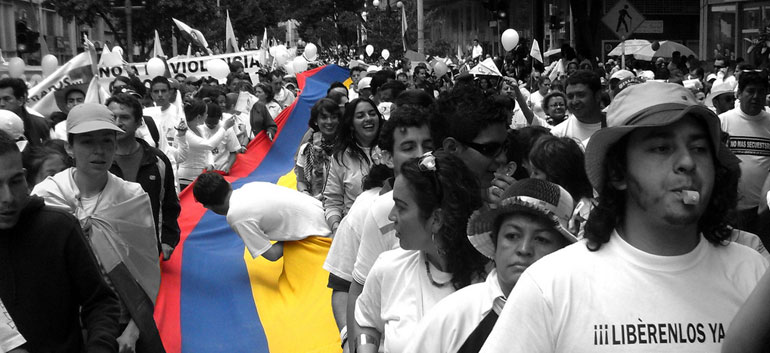Human rights organizations are calling on the government of Colombia to take concrete action to fight forced disappearances, during an international week of commemoration.
National Center for Historical Memory (NCHM) announced on Thursday that it will be commemorating the more than 25,000 people that have been forcibly disappeared under the country’s longstanding armed conflict, with a week dedicated to “reflection, culture and memory.”
As part of the “International Week of Forced Disappearances,” human rights organizations throughout the country have called on the Colombian government to take action against the ongoing issue.
One person every two days
A recent report by the NCHM revealed that more than 700 forced disappearances have occurred in the country over the last four years, averaging to approximately one person every two days.
The investigation further revealed that at least 90,000 people have disappeared in Colombia over the last 40 years, with more than 20,000 of those cases involving state agents.
MORE: Disappearances in Medellin increased 20% in 2013
The event, which will take place between May 25 and May 30, will include art exhibitions, theater performances, and the release of informative reports throughout various areas of the country.
The event’s organizers told Colombia’s El Espectador newspaper that they hoped to expose, “the systematic concealment of this crime against humanity,” stating that impunity and negligence towards the issue has been perpetuated on all levels including the media.
Ana Teresa Bernal, the High Counselor for Victims told the newspaper that “the issue of forced disappearances continues to be hidden, it is a subject that is not made visible and has not been acknowledged with the force that it should.”
25,000 missing
Statistics collected by NCHM, one of the events key organizers, reveal that between 1958 and 2012, 25,000 people went missing as a result of being forcibly disappeared.
The mayor of Bogota, Gustavo Petro, told El Espectador that at least 4,000 of those reported missing were part of what became known as Colombia’s “false positives” scandal, an extrajudicial killings controversy which reached its peak under the presidency of Alvaro Uribe.
MORE: Ten ‘false positives’ cases, 232 extrajudicial killings in 2013: human rights organization
Colombia’s “false positives” scandal is centered around the extrajudicial killings of thousands of civilians by members of the armed forces who dressed their victims as guerrillas in order to present them as combat kills.
What the practice of false positives did — be it intentionally or unintentionally — was inflate the apparent success of the government in its fight against left-wing guerrillas and right wing paramilitaries. In 2007 — the year most false positives were registered — more than one in five registered combat kills were in fact executed civilians.
MORE: City of Buenaventura leader in urban displacement: NGO
Pacific problem
Forced disappearances are still widespread throughout the country, and are particularly prevalent on Colombia’s violence-plagued Pacific coast.
The cities of Tumaco and Buenaventura, which sit along key coastal drug trafficking routes, have seen a drastic increase in disappearances over recent months.
Human Rights Watch has referred to Buenaventura to as “one of the most violent places in Colombia.”
In a report in late March, Colombia’s Ombudsman, Jorge Armando Otalora, said that since January 1, there have been 87 homicides, eight people had disappeared and 1086 people had been displaced.
Regarding the national phenomenon, the director of NCHM, Gonzalo Sanchez, said, “We are not just talking about things that happened in the past, but things that are happening in critical zones around the country […] which have alarming levels of displacement that should alarm us all.”


